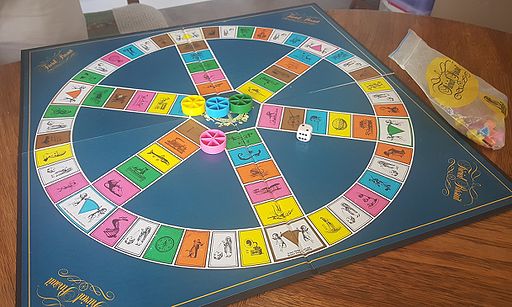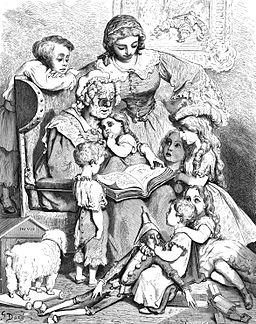You Guessed It!

The board and pieces for Trivial Pursuit, the 1981 classic game. Photo by Pratyeka.
There may be a kernel of truth to the opinions of all the players, and yet there should be a better way for everyone to shine and have fun. The habitual losers of a board game like Trivial Pursuit, or of home viewing play along sessions while watching the television quiz show Jeopardy!, are not necessarily stupid people, any more than the habitual winners are geniuses. A good game dynamic should welcome in a variety of personal strengths so that most players can be competitive. It appears former Jeopardy! champion Ken Jennings, along with game development partner Richard Garfield, the creator of Magic: The Gathering, have recognized the flaw at the heart of many trivia games and tried to overcome it in their new game called Half-Truth.
A scene from the 1975 film Monty Python and the Holy Grail, with Graham Chapman, John Cleese, Terry Gilliam, Eric Idle, Terry Jones, and Michael Palin.
Half-Truth calls on a player’s capacity for deductive reasoning and strategic thinking as well as the usual ability in trivia games of being able to tap into a personal well of knowledge. Expected release for the game is this year’s holiday season. Like all but a few trivia board games and pub trivia nights, using smartphones to look up answers will probably be against the rules. Leveling the playing field by incorporating more ways for more players to remain competitive rather than relying on the one and only way available in standard trivia games seems like a good plan for a game that will become popular and get played more than a few times and not soon forgotten on a closet shelf like many other trivia board games, and that will lead to sales of additional sets of question cards, the great recurring source of revenue for trivia game makers. In the old days, a player could cheat by memorizing the information on cards played over and over again; now they cheat by sneaking a peek at their smartphone, the handheld virtual encyclopedia.
— Techly 


